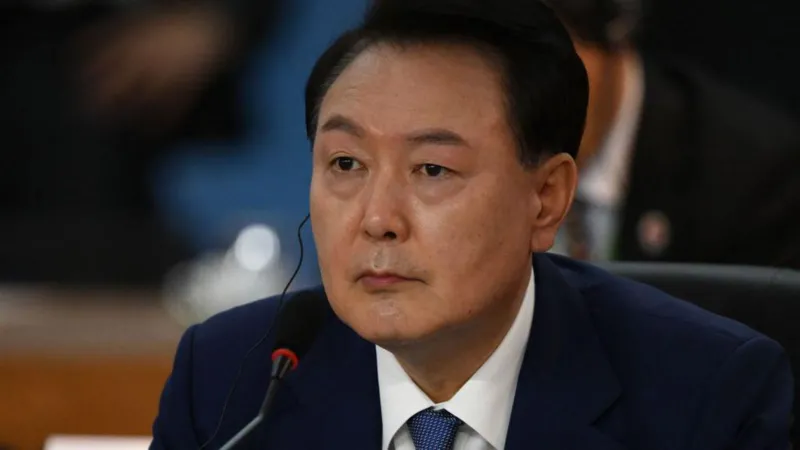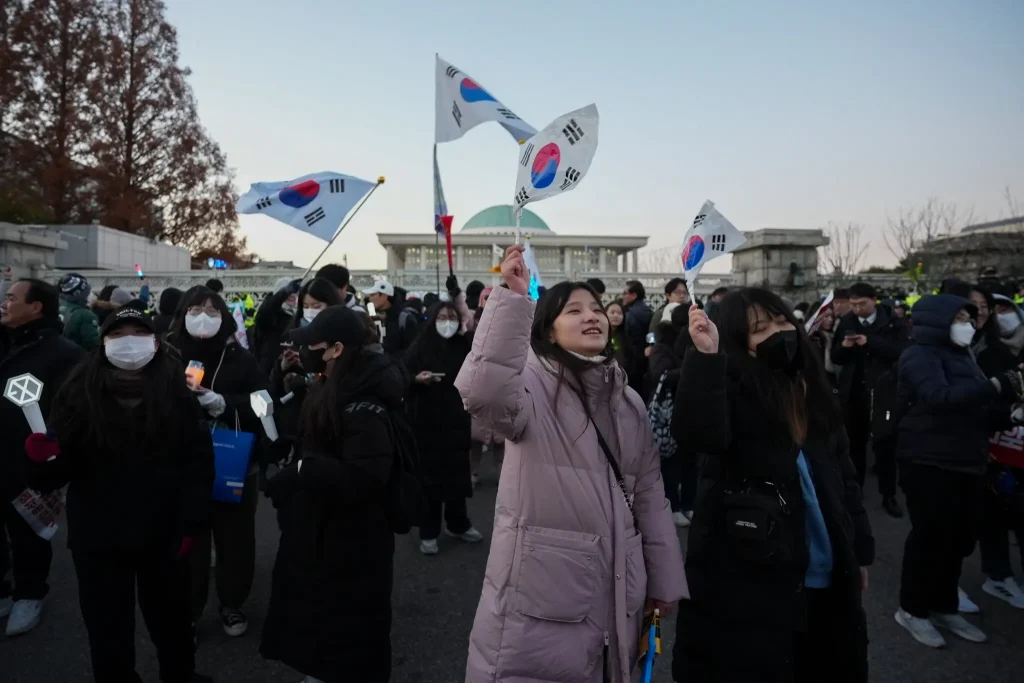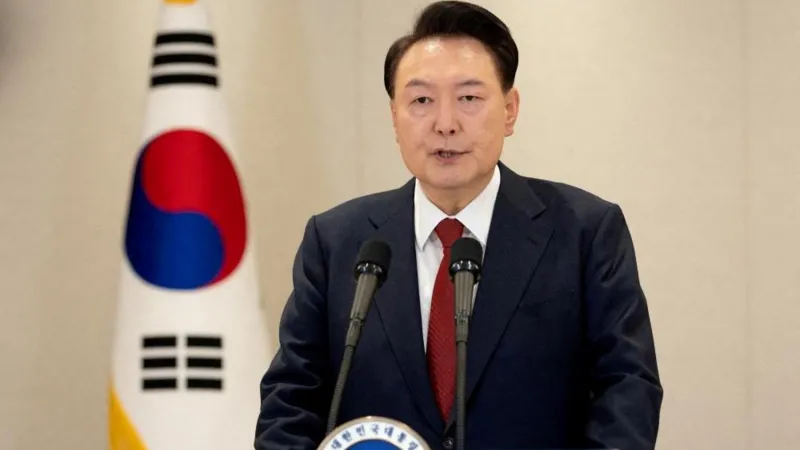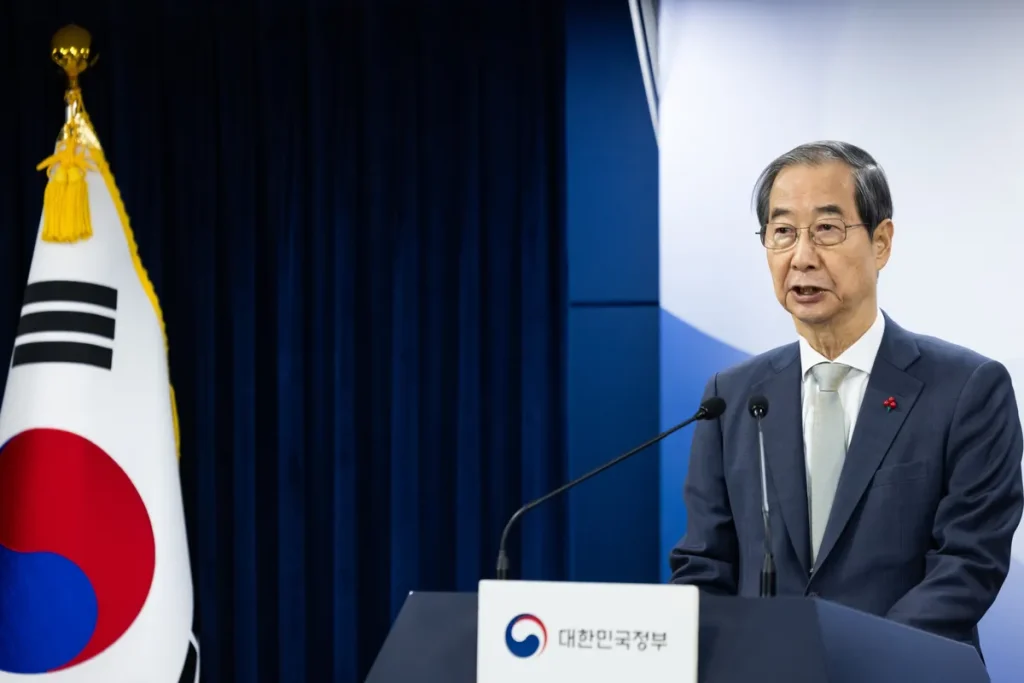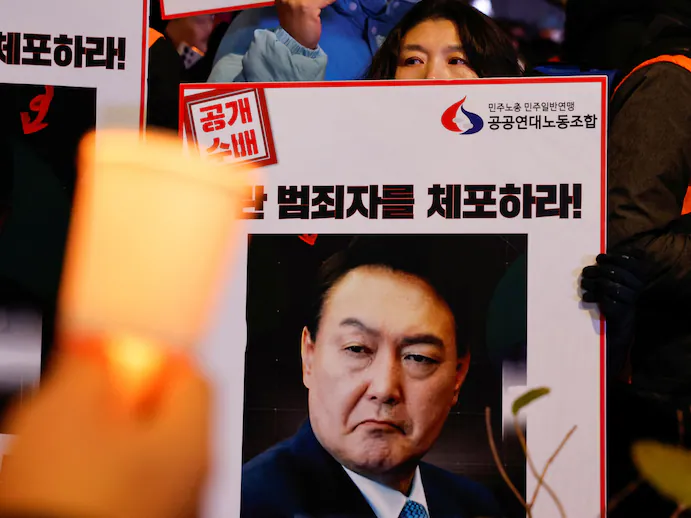Opposition Grows to South Korea’s President as He Faces Impeachment
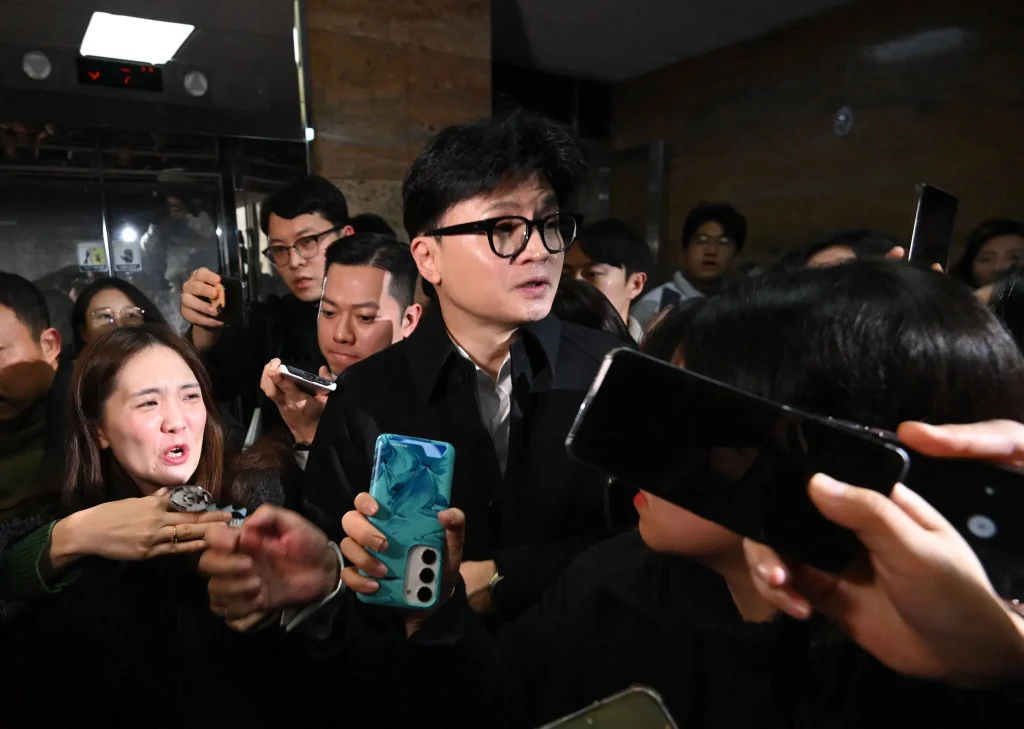
In recent weeks, South Korea has been plunged into a political crisis as opposition forces mount a growing challenge to President Yoon Suk-yeol’s leadership. The situation escalated as calls for impeachment intensified, following accusations of mismanagement and controversial decisions. This marks a significant moment in South Korea’s democracy, as President Yoon faces increasing opposition from within the political landscape and society.
The Political Context
President Yoon Suk-yeol, a former prosecutor-turned-politician, took office in May 2022 after securing a narrow victory in South Korea’s presidential election. Coming from the conservative People Power Party (PPP), Yoon’s rise to power was characterized by promises to bring change to the country, with a focus on addressing corruption, promoting economic growth, and strengthening South Korea’s international standing.
However, his presidency has faced mounting challenges, particularly on domestic issues. The administration has been criticized for its handling of various aspects of governance, including the economy, its approach to North Korea, and growing political polarization. The situation has worsened with the president’s approval ratings sinking significantly, and his approval among young voters has been particularly low.
The Growing Opposition
The push for impeachment has been gaining traction, with opposition parties and public discontent at the forefront. Several factors have contributed to this rising opposition, including perceived missteps in the government’s economic management, controversial policy decisions, and disagreements over President Yoon’s stance on North Korea.
- Economic Concerns: One of the major points of contention has been the administration’s handling of South Korea’s economy. The country has been grappling with rising inflation, sluggish economic growth, and challenges related to housing affordability. Critics argue that Yoon’s policies have failed to address these issues adequately, leading to widespread frustration, particularly among young people and working-class families.
- Social Policies and Inequality: Yoon’s administration has also faced criticism for social policies that many believe favor the wealthy and exacerbate inequality. One such policy is the government’s handling of housing and land prices, which has led to accusations of inaction in addressing the growing gap between the rich and the poor. Furthermore, labor unions and other social groups have staged protests demanding more attention to workers’ rights and welfare, further contributing to the growing discontent.
- North Korea and National Security: Another critical area of concern has been Yoon’s approach to North Korea. During his election campaign, Yoon promised a firmer stance on Pyongyang and closer ties with the United States to counter North Korea’s growing military capabilities. However, his administration’s hardline approach has not been well received by all, particularly those who advocate for greater engagement with North Korea in pursuit of peace and stability on the Korean Peninsula.
- Political Polarization: Since taking office, President Yoon has been accused of exacerbating political divisions within South Korea. The deeply polarized political climate has made it increasingly difficult for the government to implement its policies effectively. This division has led to tensions between the ruling and opposition parties, with accusations of authoritarianism and disregard for public opinion against Yoon’s administration.
Impeachment Process
The push for impeachment is gaining momentum as opposition parties, including the Democratic Party of Korea (DPK), continue to accuse President Yoon of breaching his duties. Under South Korea’s constitution, the National Assembly has the power to impeach the president if a majority of lawmakers support it. If the motion is passed, the president would be suspended from office, and the case would be referred to the Constitutional Court for a ruling. If the court upholds the impeachment, the president would be permanently removed from office.
Opposition parties, led by the DPK, argue that Yoon has failed to fulfill his promises, mismanaged key aspects of governance, and led the country into a period of political and economic turmoil. They have pointed to the mounting dissatisfaction among South Koreans and the president’s inability to bridge divides between different sectors of society as key reasons for seeking his removal.
Public Opinion and Protests
Public support for Yoon has been significantly eroded, with protests growing across the country. Labor unions, student groups, and civil society organizations have been at the forefront of these demonstrations, demanding accountability and a change in leadership. Some protests have called for the immediate resignation of the president, while others have focused on specific issues, such as economic inequality and the need for more progressive social policies.
In addition to protests, public opinion polls have shown a decline in Yoon’s approval ratings, with many South Koreans expressing dissatisfaction with his handling of key issues. His approval rating has fallen to historic lows, and analysts suggest that this loss of public confidence may further fuel the call for impeachment.
The Role of the National Assembly
The National Assembly, which is dominated by the opposition parties, plays a crucial role in determining the fate of President Yoon. If the opposition can garner enough votes in the legislature, they can force an impeachment motion to the Constitutional Court. However, securing a majority in the National Assembly will be challenging for the opposition, as the ruling PPP still holds a significant number of seats, despite the erosion of support for Yoon.
The PPP has expressed confidence that it can block any attempts at impeachment. However, with public sentiment shifting, some members of the ruling party have begun to distance themselves from Yoon, acknowledging that the administration’s approval ratings are concerning and that some of the president’s policies may need to be reconsidered.
The International Implications
The impeachment of President Yoon Suk-yeol would have significant implications for South Korea’s international standing. As a key ally of the United States and a major player in the Asia-Pacific region, a leadership change in South Korea could affect its foreign policy, particularly its relationship with North Korea and its strategic alliances.
South Korea’s position on regional security, economic cooperation, and its role in international organizations could shift depending on who succeeds Yoon. If the impeachment goes ahead, it would also raise questions about the stability of South Korea’s democratic institutions and the effectiveness of its political system in handling crises.
As opposition to President Yoon Suk-yeol intensifies, the political landscape in South Korea is rapidly shifting. With growing protests, declining approval ratings, and calls for impeachment, the future of the presidency is uncertain. The National Assembly’s role in determining whether the impeachment process moves forward will be crucial, and the outcome will shape South Korea’s political trajectory in the coming years.
While the situation remains fluid, one thing is clear: South Koreans are deeply divided over their president’s leadership, and the next steps in the impeachment process will be watched closely, both domestically and internationally. How the government handles this challenge could have lasting consequences for the stability of the nation and the public’s trust in its democratic institutions.


